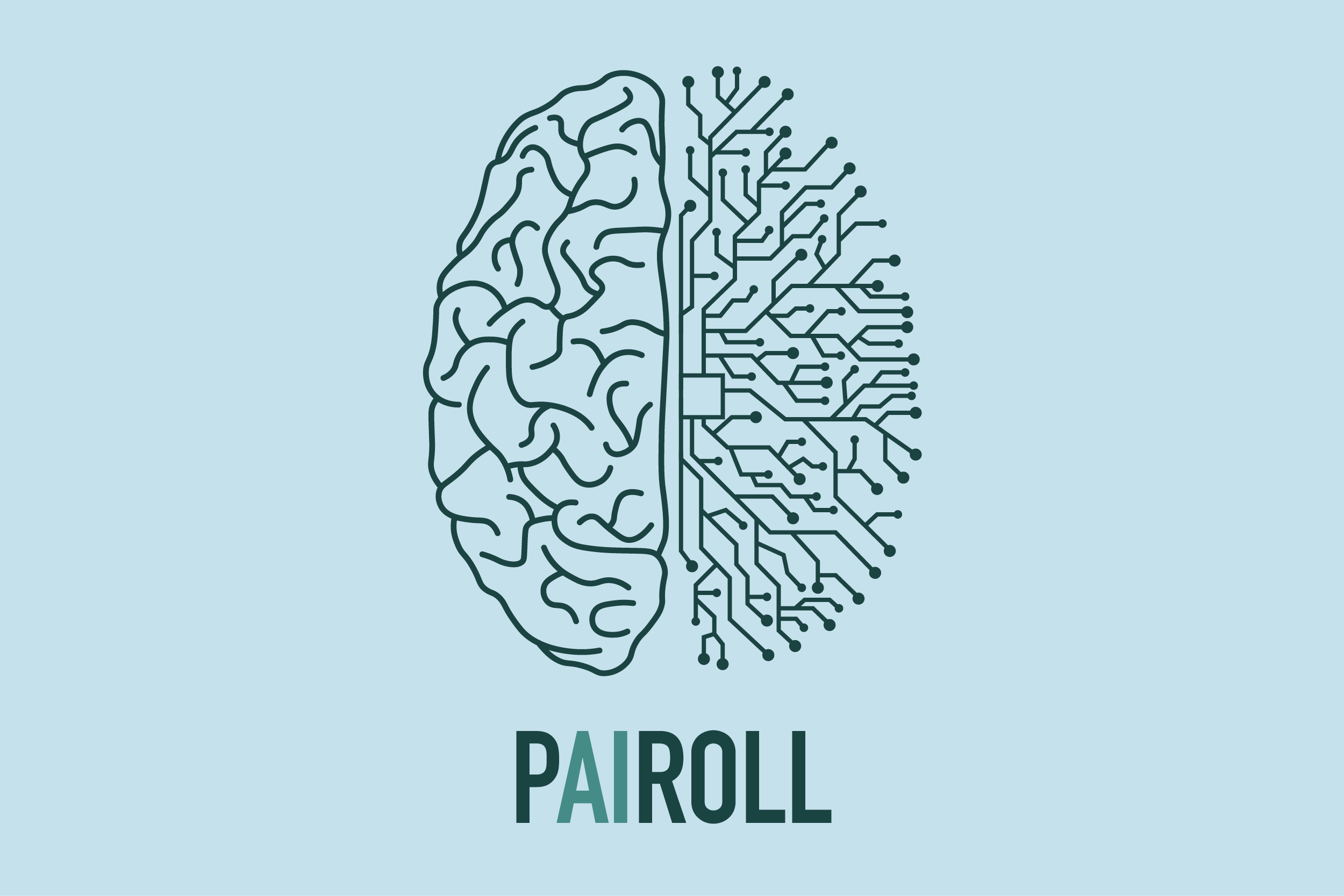Intelligence, community and recognition for pay and reward professionals.
PAIROLL
 Michal Lodej
Michal LodejAI, will it cause more problems than it solves, or will it be catalyst for payroll productivity?

In an era of technological advancements, artificial intelligence (AI) has emerged as a game- changer across various industries.
From healthcare to finance, AI has revolutionised processes and paved the way for improved efficiency and accuracy. One area where AI holds immense potential for transformation is payroll management. Traditional payroll systems are often burdened with manual processes, paperwork, and human errors. However, by harnessing the power of AI, payroll can be streamlined, saving time and resources while ensuring precision. In this editorial, we delve into the promising realm of AI-powered payroll and its potential to reshape the future of workforce remuneration.
Well, that’s what AI would say! That’s right reader, that first paragraph was written by a machine, specifically Chat GPT. I promise everything from now on will be created by a human, but it must be said, it’s a pretty good intro.
Read more: Reward 300 announced for 2023
Every day a new story comes out about what AI can do, the industries it can revolutionise and what is the next big disruption. Honestly, it is all rather amazing, it can write, create music, and even art, however,
the technological utopia of the future I had imagined was one where the robots did the hard work, leaving the art and creativity to us humans.
Taking on the grunt work
If the hope is that technology will remove the arduous manual tasks out of our lives, then there is plenty of scope for AI to improve payroll. But this is nothing new, AI isn’t the only technological improvement to come along into this industry, with computing being used for payroll since the mid twentieth century.
Jim Woodlingfield, payroll and pensions manager at Sunderland City Council, explained: “Payroll has always been at the forefront of technological development in business, one of the first non-military use cases for computers after the Second World War was in processing payroll. Payroll professionals have integrated BACS transfers, electronic payslips, self- service portals, chatbots and more into their business-critical tasks and AI will be no different.
“We no longer have rooms full of payroll clerks and our software is now in the cloud, AI will be a change, but it won’t be the end of payroll as a profession. It will give us more communication options, pattern matching and searching, assistance in drafting communications and creating visual guides but it won’t replace the experience, knowledge, and strategic acumen of the payroll professional.
“We will still need the knowledge to check the AI results, the experience to decide when to apply them and the understanding of how calculation is done in order to deliver the best service for our customers and organisations.”
Read more: Keir Starmer urged to back four-day week
Susan Clayton, City and Guilds global payroll manager agreed: “From my perspective, I do think AI can be an advantage for large employers who work with complexity such as hourly paid, variable hour workers. Where temporary data is added each month. This concept being that hourly workers must record time worked to get paid.
"AI is helpful when large organisations have a great deal of data entry and validation avoiding the need for manual input which can avoid human error. I think most payroll systems already have AI installed into the software these days to allow more accurate calculations and detect anomalies that would most likely have been undetected in previous years before AI was introduced.”
Joy Han, group payroll manager at Boohoo.com UK, made reference to the change that AI has already had on payroll.
She said: “The traditional role of ‘data in-putter’ is now switching to data auditor for the payroll team with the help of technology. Normally the HR department will send out employee details -including rate of pay - and the T&A system sends the payroll team the shift information, then all relevant third parties will send payroll information such as tax codes, court orders, pension and so on.
“AI technology can be used to sense and flag any errors for checking before any action is completed in payroll.
For example, if HR sets up a normal employee with director level benefits, AI technology can flag it for HR to double check; if staff clocked in foran unscheduled shift, AI tech should flag to T&A team to double check. These functions can help accurate data be added into payroll system to run calculations in real time.
Read more: Experian launches service to combat ’money mule’ scams
“The employee will be able to see net pay increment daily after a shift and know exactly how much their net pay will be, this might integrate with an early pay function, currently a very hot topic but facing some tech difficulties, especially when file to HMRC through FPS to HMRC, which AI tech can also help with.”
Han continued, “The more advanced reporting functions AI tech can achieve could give employers more visualised costing information for the whole business, which is very useful for budgeting and decision making. For example, the company could use AI tech to compare different scenarios of different pension schemes instantly and visualise the benefits for decision making.
“Relevant parties such as HMRC and other authorities, pension providers, benefit providers and so on can integrate with the payroll software more seamlessly with the help of AI, the communication will be more automated, for example, the payroll software will be able to update councils when staff leave, so no further orders are issued or expecting funds for leavers.”
Trust the process
With the slow removal of a human touch in the payroll process, there needs to be some serious trust placed in the systems taking these processes on, especially when it involves peoples’ salaries.
Mel Noon, head of payroll, at Bettys and Taylors said: “The potential replacement of people could be problematic for our end users because, as people, we like accountability, and we trust that we are accurate after we have learned a process and we feel comforted by the fact we can have a person to talk to in the event of confusion or error. With AI, we (as payroll professionals) need to trust the results we are seeing and ensure the processes we have implemented, are complementary for an AI environment to be successful. Trusting the system can be a behaviour hard to learn.
Read more: Inaugural Leadership Awards celebrated by Reward Strategy
“In contrast, HR functionality can and has evolved at a much quicker pace which thankfully supports our ultimate goal - to pay our people payments correctly and on time, so what technology could we utilise to support our combined goals?
“Automated workflows which support the full employee lifecycle, including offboarding.
Chatbots to answer employee frequently asked questions which will free up department staff from answering
minor payroll queries, policy questions and scenario testing.
“Efficient workforce management systems with data flows from scheduling and rostering through to geofenced
time and attendance systems which feed directly into the payroll. Including automated and rule-based exception management to relieve our Line Managers of the additional pressure of time management.
“Cloud based solutions that offer remote support in the event of disaster recovery, and tools to analyse and understand our workforce and what information they are seeking through self-service and chatbots – so we can educate better.”
Keep the talent
With some of the arduous work being taken on by machines, could this mean there in an opportunity for payroll departments to drive better value for the companies they work for? Karen Booker, head of transactional finance, Dimensions, thinks this is the case: “What AI in payroll is not about is replacing the expertise and attention to detail that experienced payroll professionals provide. What it is about is defining and streamlining processes to bring about cost reductions and improvements in processing data whilst ensuring improved compliance, governance, and error reduction.
“We must continue to provide value for money focusing on activities that expand our business offering and we must play our part in improving employee retention, by being innovative, embracing a future proofing ideology. We need principled values, and practices that can utilise the tech companies’ contribution to provide out of the box solutions that work. Of course, we must take our colleagues on a journey of upskilling. We need life-long learners who have the courage to work with new technologies and can maximise the functionality of solutions that are now available. We need vision and passion for payroll to be able to see that the grass is greener on the AI side.”
Han added: “Some payroll software is very advanced nowadays, for example it can interlink individual logged absence and pay SSP correctly; it can also do average holiday pay on the four weeks of ordinary leave but not on the 1.6 weeks’ additional leave. It can show gross and net pay on each working day on an incremental basis, so the employees know how much they earn day by day. But all these useful functions are coming with an extremely high cost
One to get our heads around
Aside from the benefits and opportunities, there are still many question marks around AI and whether it will be accepted universally.
Noon, explained: “Artificial intelligence within some payroll businesses is still a taboo subject, especially smaller businesses with limited cash flow for upgrades and/or an unwillingness to change the status quo. But what has AI given us and do we really need it?
“AI has been around for decades and continues to evolve but within payroll, it is fair to say that we haven’t fully utilised it. Most of us can still remember the time when we used to wait on the post for P9’s to be issued or we would have to wait two months for HMRC to acknowledge a document.
"Thankfully, the technological world has evolved and one of the better things to come out of 2013 was the creation of RTI and with it, an ease in how we process our real time information, but it also led to the unimaginable; it made payroll leaders and software providers consider more of the ‘what ifs’ for our industry. What if we can streamline our processes like HMRC has? What if we try to automate more? What if we stop relying on people and spreadsheet uploads for accuracy and we rely on system automation instead? As a payroll leader, striking the right balance, was certainly my thinking.
“Fast forward a decade and have we seen development in AI that will support payroll or are we seeing AI
and automation focused on HR activity which feeds into our payroll systems? Certainly, payroll systems don’t all offer the same functionality and once you are onboard with a provider, you are at their mercy as to what functionality you will receive (although you can try to influence updates and roadmaps) so it’s difficult to not rely on people and spreadsheets – especially as not all providers have the same drive for AI development.
"This brings an accepted risk of inaccuracy and absenteeism that impacts our people payments as we rely on our department staff to be our intelligent solution, however, people bring a level of pragmatism that AI would struggle to compete against.”
Booker added: “We need to compel the wider business to see how payroll can and should have a place in the decision- making arena with the ability to make innovative and courageous assessments and evaluations. AI is nothing to fear, it will reduce burdensome administrative tasks and when capacity of our colleagues is maxed out can help realign the work-life balance we all strive for.”
